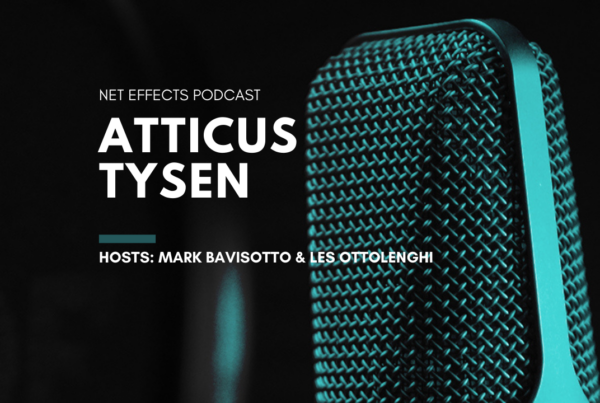Link to Original Article: https://www.i-cio.com/strategy/cloud/item/paving-the-way-to-business-transformation-with-a-multi-vendor-cloud-strategy
Caesars Entertainment has bet big on cloud to support its distributed, fast-expanding operations. CIO Les Ottolenghi tells us how that move has presented new business opportunities — and a cloud integration challenge — to the international casino and hotels giant.
Caesars Entertainment Corp may be best known for Caesars Palace, the iconic hotel and casino complex that has graced the Las Vegas skyline since 1966. But the $5 billion organization behind that has expanded dramatically in recent years, both organically and by acquisition, to encompass more than 50 casinos and hotels and seven golf courses worldwide, operating under brand names such as Planet Hollywood, Harrah’s and Horseshoe.
That broad, international footprint has created some interesting challenges — not least in the management and development of its IT.
Les Ottolenghi, Caesars’ CIO, was appointed in January 2016 with a remit to develop a digital transformation strategy and ensure that IT environment could support the continued expansion of its portfolio.
One of the key mechanisms the company turned to was cloud computing, and cloud has become the foundation of seven of the company’s digital transformation projects — six of which were completed within 18 months of inception.
From complexity to cloud orchestration“For us, the application of technology is used to benefit our customers, offering them better digital journeys, to make our operations as efficient as possible and to increase our revenues. So cloud was a very easy decision as a business strategy, and it was also an easy decision in terms of reducing the complexity and overheads of [our existing] infrastructure,” Ottolenghi explains.
And complex it was. Prior to embarking on its cloud strategy, Caesars’ IT was dominated by proprietary, aging infrastructure with many of its systems 20 years old. It relied on off-the-shelf applications whose code has been radically customized — in some cases by as much as 80%. At the same time, its portfolio of applications was bloated, numbering more than 600.
A supportive CEO and board, who recognized the growing value of new technology in their industry, helped Ottolenghi and his team to change that picture.
In a radical switch, Caesars signed up to cloud applications from Salesforce.com, Oracle, Infor and cloud platform services from Microsoft and AWS to support marketing, finance, human resources, gaming, hospitality, employee productivity and cybersecurity.
That has reduced complexity significantly, says Ottolenghi, but it has required finding a means to integrate the flow of information and processes between these different cloud environments. The company built a service orchestration layer between clouds and reduced all integration services to a simple set of micro-services between either an application and a data source or between two applications.
Oracle’s ERP Cloud was a good fit in that it allowed Caesars to quickly migrate to its financial and HR systems. Infor, meanwhile, enabled the casino and entertainment business to consolidate the 11 different property management systems that Caesars used into one. And the adoption of Salesforce.com has replaced the use of multiple sales and marketing apps.
Pivotal has been chosen to orchestrate the flow of data between these clouds. Caesars wanted to create a service orchestration layer between different clouds, and reduce all integration to a simple set of micro-services between either an application and a data source, or between two applications.
“What we’ve done is allow for the services to be connected in a simplified way. Not only can they speak to each other but they can exchange information in a totally different, connected way. So we can now govern all the enterprise analytics and streaming of data through all the different systems,” Ottolenghi says.
Ottolenghi predicts that its latest (and seventh) digital transformation project will usher in the biggest change for the organization. It focuses on co-ordinating all of the different gaming platforms and types of game that the company runs (including traditional casino, video, and eSports) into a single place. Once again, the organization will be looking to the cloud to help deliver this project.
“Cloud gives us leverage to build services that are not only better and cheaper but which can also match the speed and agility of the business,” Ottolenghi says.
Nebulous fearsThe company’s investment in cloud is also driven by another factor: a trust in the security of cloud environments.
Many of the early fears of handing precious corporate data and applications processing to a third party have dissipated in the past few years. There are countless examples of businesses hit by data breaches and cyberattacks. “But you never hear of cloud infrastructure companies being broken into. They spend billions on securing those environments on our behalf to protect what is essentially our apps and data,” Ottolenghi says.
“So going to the cloud turns out to be more secure. The services come with features for identification and authentication that are military-grade,” he adds.
Improving the customer journeyBut for Caesars, cloud isn’t just an enabler of efficiency, modernization and greater security. The ability to compute at scale means that technologies such as artificial intelligence and machine learning are now within reach. Caesars is already deploying machine learning as part of its Salesforce.com service and for hospitality data within Infor.
“All of these get us to a better customer journey. For example, we’re currently launching a system that uses real-time analytics to send offers to customers’ mobile devices or email addresses, reducing the time it takes us to produce these by about a thousand per cent,” Ottolenghi says.
As that suggests, cloud is one big bet that looks like it will continue to pay out for Caesars.








